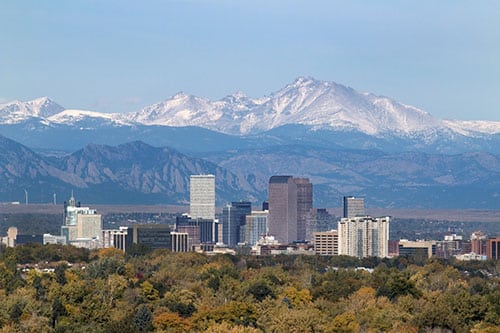Colorado is the 38th state, and up until a few years ago, it was just another beautiful part of the Midwest. Medical marijuana was legal in Colorado for many years before the vote on recreational use. In in 2012, Colorado state legislators decided to make a groundbreaking change that would shift the marijuana and drug landscape forever. Once they legalized marijuana for recreational use, questions started to arise all over the nation, but in the years since, the decision seems to have mixed opinions regarding it’s success. Police say they struggle to enforce a mixed bag of laws covering marijuana, including drugged driving. Below, we outline Colorado’s drug laws and how they affect the drug screening industry.
Colorado’s Drug Policy
A Colorado Marijuana Legalization Amendment, also known as Amendment 64, was passed in November of 2012. The amendment legalized the use of marijuana for BOTH medical and recreational use in the state. They were the first, and since then, more and more states have joined the medical and recreational movement. In Colorado, a homeowner is allowed to grow up to six marijuana plants in a privately locked space and they can legally possess all of the plants they grow. Sale is restricted and regulated by the state government and as the rest of the states start to vote one way or the other, more legislation is going to be necessary.
Regarding legal marijuana, the law states nothing shall require any employer to accommodate the medical use of marijuana in the workplace. The Colorado Supreme Court has upheld and employee termination for testing positive even when the employee claimed medical marijuana. Amendment 64 states: “Nothing in this section is intended to require an employer to permit or accommodate the use, consumption, possession, transfer, display, transportation, sale or growing of marijuana in the workplace or to affect the ability of employers to have policies restricting the use of marijuana by employees.”
Drug Screening in Colorado
Unlike most states, Colorado does not have a statutory scheme governing workplace drug testing. While they do have regulations when it comes to unemployment, the state does not put many restrictions on the circumstances in which a private employer may or may not require drug testing. When it comes to unemployment, the state of Colorado does NOT require employers to cover unemployment benefits for employees that have been terminated due to a failed drug test. However, an employee with a disability that requires the use of medical marijuana can not be discriminated against as per the Americans with Disabilities Act (ADA). Colorado has taken a very liberal approach to the drug issue, but their government chooses to let private business dictate their own drug screening policy.
Future Drug Reform
Could heroin become legal in Colorado? This once outlandish thought could very well become a reality in the not so distant future. Legislators feel that by taking away the threat of prosecution, more addicts will seek help and people who start the drug will use it in a safer way. Is this the answer to the heroin epidemic? It seems we’re going to have to wait and see.
At National Drug Screening, we provide a number of different drug testing services all across the United States. For expert consultation on a Drug Free Workplace Policy or Colorado’s Laws on Drug Testing, call Joe Reilly at National Drug Screening at 321.622.2020.







